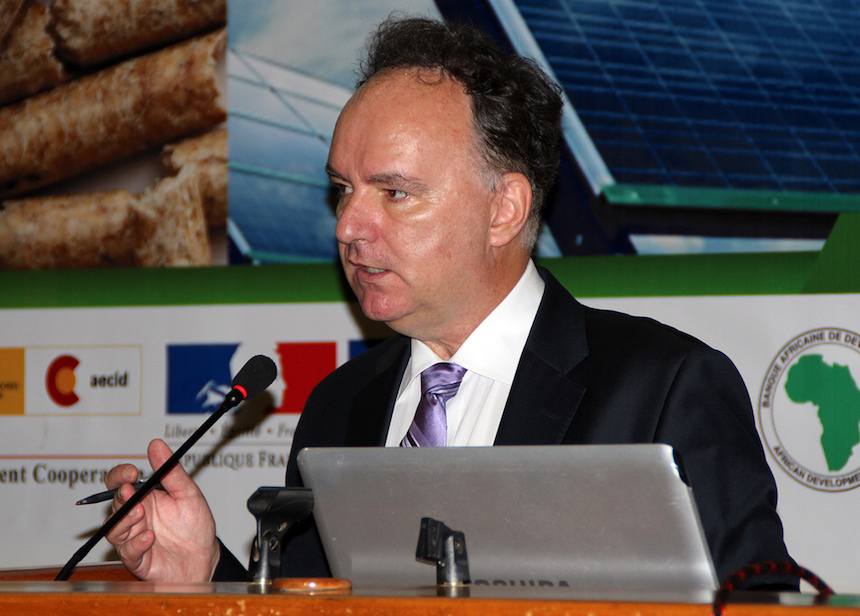
Executive Director of the Global Open Data for Agriculture and Nutrition (GODAN) Initiative André Laparrière says the private sector, because of its critical role, should no longer be overlooked in the campaign against global hunger. Laparrière, who presented keynote addresses at the Global Forum for Innovations in Agriculture Europe conference, this Tuesday and Wednesday, where new developments in sustainable agriculture were on display, oversees GODAN’s secretariat located in Oxfordshire with a team of five full-time employees. GODAN, with its 511 members, focuses on promoting agriculture and nutrition open data among governmental, non-governmental, and private organizations in order to increase the availability, accessibility, and usability of such information to combat issues with global food security.
“You have states, which generate and possess much of the data. There are citizens with lots of specific needs for which the data can be used, and there’s the private sector in between,” Laparrière said, identifying the three key actors in his open data narrative. “It [the private sector]’s in the best position to exploit the data and use it to develop products that help meet the needs of the population. So the private sector is the motor of development and has a big role to play.” According to Diginomica, Laparrière notes that private organizations are also needed because of the technical and resource limitations faced by non-governmental organizations, cooperatives, and civil society to source for and manage large amounts of available open data, adding that the limitation is causing “moral dilemma” for several research organizations. For example, small farmers who are the target beneficiaries of many agricultural research do not have the technical wherewithal to handle the volume of data released in research results; and the results are withheld from the big companies who have the technical knowhow because they are not the target beneficiaries.
Laparrière calls for the creation of the “so-called pre-competition spaces,” where competitors, in order to optimize the use of the available open data, would work together to tackle common problems at the elementary stages of developing a commercial product. He cited a personal experience in which the lighting company he worked for collaborated with other manufacturers, through data sharing, to cut cost and reduce mercury pollution and energy consumption. He encourages companies to focus on the general good – for both consumers and the companies involved – that emanates from data sharing, and not on the probable vulnerability it could cause. “If you release data in the right way to stimulate collaboration, it is positive economically and benefits both consumers and companies too as it helps reduce their costs and minimize other problems,” he said.
Laparrière foresees an increase in the use of the pre-competition spaces among manufacturers and also among packaging and food preservation companies as government regulations and policies increasingly require processed food manufacturers to disclose product ingredients. He said the vastness and complexity of agriculture and nutrition prove that the field still has a lot of opportunities to be explored. However, according to Laparrière, some companies are already making use of open data to create positive values. For instance, eLEAF, a Netherlands-based company, is contributing to the FruitLook program in South Africa, supported by the Agriculture Department of the Western Cape, the European Space Agency, and Hortgro Science, a local research organization that focuses on the deciduous fruit industry. The program makes use of eLEAF’s PiMapping technology which employs raw satellite and routine weather station data to evaluate soil quality and facilitate precision irrigation and better water management. Also in Ghana, Esoko, a non-governmental organization, has created “TradeNet,” a platform designed to collect national data on the selling price of farm produce alongside the costs of seeds and fertilizers – a piece of information that is sent daily to rural farmers through SMS to help them cut their production costs and increase profit margins. The platform has pulled membership from ten African countries, bringing over 350,000 farmers on board and helping them to increase income by 11 percent on average. Laparrière predicts the next internet revolution will come from open data as citizens mount pressure on their governments to make use of big data in a productive manner.
